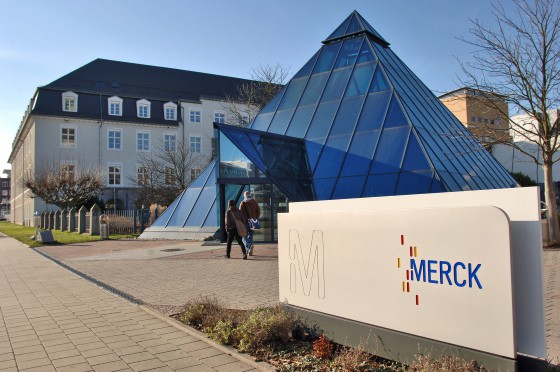
Merck KGaA will meet financial targets for 2014 a year early after getting off to a good start in 2013, with first-quarter sales up 4 per cent and net income leaping more than 50 per cent to €266m.
The rise in sales for the period to €2.76bn came despite a tough operating environment in Europe – where the company still managed to grow by a percentage point – and was helped by the group’s performance in emerging markets and its Merck Serono pharma division.
Sales at Merck Serono rose 3.5 per cent to €1.45bn in the quarter, with top-selling drug Rebif (interferon-beta-1a) for multiple sclerosis (MS) up 6 per cent to €454m on the back of price hikes in North America and the introduction in the US of the new RebiDose injector device.
Cancer therapy Erbitux (cetuximab) also had a solid quarter – up 6.6 per cent to €222m – thanks to approval for head and neck cancer in Japan and gains in emerging markets, where sales rose 18 per cent. All told, Merck Serono sales in emerging markets were 8 per cent higher at €426m.
Meanwhile, despite its maturity, diabetes stalwart Glucophage (metformin) was one of the main drivers of organic growth at the division, with a 25 per cent hike in revenues to €104m. This performance helped offset declines for other key brands, such as fertility treatment Gonal-f (follitropin alfa) and growth hormone product Saizen (somatropin), down 4 and 8 per cent to €145m and €54m, respectively.
Merck’s consumer health business also had a good quarter thanks to a long cough and cold season, with sales up around 8 per cent to €116m and operating profit more than doubling thanks to a restructuring drive started last year.
For the pharma division, Merck’s reliance on Rebif, which accounts for more than half of its revenues, is something of a worry for investors given the launches of other MS medicines that can be dosed orally rather than by injection, namely Sanofi’s Aubagio (teriflunomide), Biogen Idec’s Tecfidera (dimethyl fumarate) and Novartis’ Gilenya (fingolimod).
Merck’s chief financial officer Matthias Zachert said on a conference call that, while Rebif has held up since the launch of Aubagio last year, Tecfidera’s introduction a few weeks ago is probably the most likely to have an impact on the market.
Rebif will continue to grow in the first half of 2013, but “we are going to see erosion on sales on Rebif in the second half”, said Zachert, whilst stressing Merck still expects the drug to maintain full-year sales at around the same level as 2012.
Merck Serono needs its pipeline to deliver if it is to wean itself off dependence on Rebif, with much riding on the potential of phase III pancreatic cancer candidate TH-302 and recently-licensed MS drug Tcelna (imilecleucel-T) following the decision to drop brain and lung cancer prospect cilengitide from development in the first quarter.
Overall, the company predicts revenues for 2013 will now be in the €10.7bn to €10.9bn range, with gross earnings of €3.1bn to €3.2bn.
“This is … confirmation that we [are] well on track driving organic growth, but also delivering bottom line results, which for Merck was not always the case in the past,” said Zachert.




